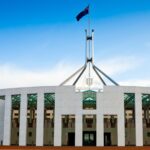AskMBS responses can be relied on in a review, according to a senior PSR panellist at the GP22 conference.
GPs had an unprecedented opportunity to interrogate senior members of the Professional Services Review at the RACGP’s recent annual conference.
The Q&A formed part of a panel session on “Demystifying the PSR”, hosted by RACGP Victorian chair Dr Anita Muñoz, and comprising the PSR’s acting director Dr Antonio Di Dio; executive officer and general counsel Bruce Topperwien; and principal legal officer Margaret Parker.
Questions were submitted in advance and taken based on audience preference.
The first question was whether responses received from AskMBS can be used to defend a practitioner’s billing if they are investigated by the PSR.
“The answer is yes,” said Mr Topperwien. “We will take into account whatever answer you have received from AskMBS when we’re looking at your conduct in connection with that service. We would want some sort of evidence that you really did Ask MBS about it and that was the answer that you got, but if you rely upon advice you got from the Department of Health through the AskMBS line, then one could hardly say it’s unacceptable conduct.”
Dr Muñoz suggested the MBS could make its policy clearer.
“So, is there an opportunity there for your agency to ask the MBS to stop telling us that their information cannot be relied on when we are reviewed by the PSR – which is what we’re currently told?” she said.
“I will certainly put that to the Department of Health,” Mr Topperwien said in response.
The panel was also asked why, given the powers of the Privacy Act and the option to redact patient and clinician information, PSR determinations and evidence were prohibited from disclosure.
“We say that with a simple redaction of a patient’s name, when you’re discussing a full patient record for a patient in a remote area with a particular condition, it’s not actually sufficient to de-identify them simply by removing their name,” Ms Parker said.
“PSR committee hearings involve in-depth discussion of a full patient record, and the fact that committee hearings are closed and we don’t publish results is to protect patient confidentiality.”
While she appeared to offer this rationale based on “a patient in a remote area with a particular condition” possibly being easy to identify, she didn’t address whether it would apply in situations where the patient was less easily identified.
“The Department of Health does not have the power to subpoena patient records – that’s something that only sits with PSR – and because we have been bestowed that power by government, there are very strict rules around how we can use the information that we have,” Ms Parker added. “The information that we collect can’t be used in other civil or criminal proceedings, it must be held in certain ways. And then part of that also means that it can’t be on-published.”
Dr Muñoz next asked whether a GP would always get a nudge letter before being referred to the PSR.
“No – nudge letters are usually written in respect of a particular sort of conduct that the Department of Health is looking at, at that time,” Mr Topperwien said. “The people that that the department look at … can come both from the ‘dob-ins’ from the public or from other staff at their practice, or from the Department of Health looking at the statistical data in their billing profile.
“And so the practitioners who make up the Practitioner Review Program [which precedes a PSR investigation] can come from all sorts of sources and so won’t necessarily have got a nudge letter. But they will have been contacted a number of times by the department throughout the [PRP] prior to coming to the PSR.”
A further audience question concerned record-keeping, which regularly emerges as a concern in PSR investigations.
“Given that the only way for us to defend what we do medically, legally and ethically and from a funding point of view is the medical record – and we do a lot of that work when the patient is in the room – why can’t our records be included in our consulting time and billing time?” Dr Muñoz asked.
“Accurate records, such as the ones you’re describing, take a long time to transcribe, especially if you’re a slow typist. So why the bias against doctors who are willing to record in the way that you describe it?”
“I’m not sure that’s so true,” said Mr Topperwien. “It doesn’t really require detailed notes to explain what the consultation was about, and if you are typing up your notes while the patient is in the room, it [forms] part of the time that you’re taking for the consultation. If you choose to type up the notes at some later time, well, that’s your problem.”
Dr Di Dio added that this was one reason why it was important for peers to be on a PSR committee.
“When I review a record for a consultation of more than 40 minutes and the record says five or six words – “mum died yesterday” – well, that’s fine,” he said. “You know, I’m a GP, the [person under review] is a GP. I know exactly what’s happened there.
“Similarly, the notion that the time spent preparing a medical record should be added to the time you spend with a patient gets an awful lot of sympathy from everybody, it appears. But it’s not the rule, and unfortunately, we cannot break the rules.”
One practitioner who has been investigated by the PSR and heard the discussion told TMR that while it might give the impression the agency was fair and reasonable, the practitioner’s own experience had been the exact opposite.
Another GP22 conference presenter said while the agency might be a concern, the individual panel members “were not the problem”.






